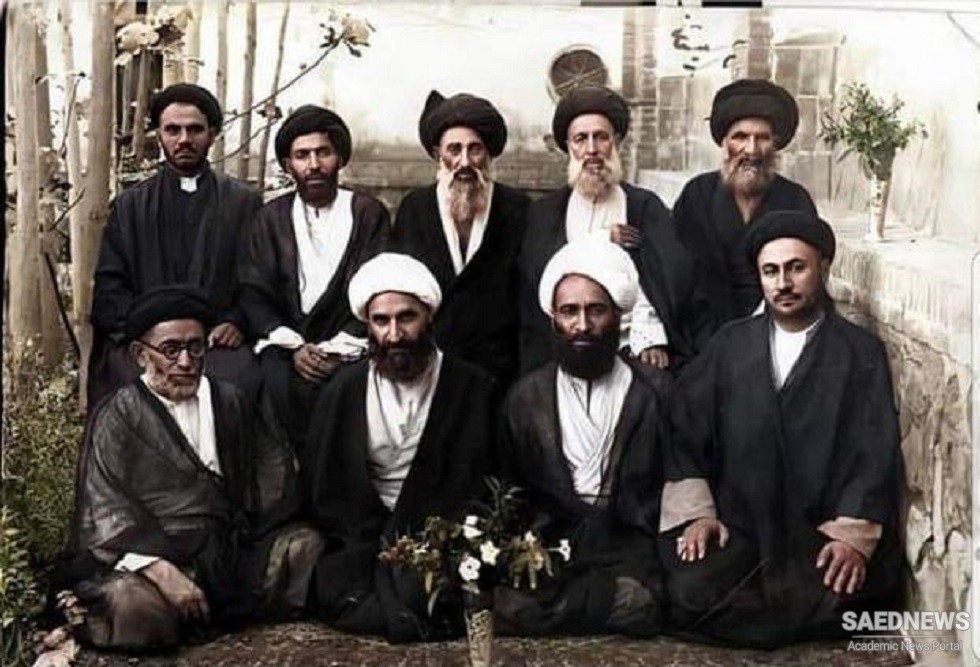When the Doyen of the Martyrs (‘a) said at the beginning of his sermon: “O people, take heed of the counsel God gave His friends when He rebuked the rabbis,” his address was not restricted to a particular group of people—those present in the assembly, the inhabitants of a certain city, town, or country, or even all people alive in the world at the time. Rather it embraces all who hear the summons at whatever time, for it begins with the expression “O people” (yā ayyuhan-nās), which occurs in the Qur’an with the same universal meaning.103 When God rebukes the rabbis—the Jewish scholars—and condemns their behavior, He is at the same time addressing His friends (awliyā) and advising them. The word “awliyā” means here those who have set their faces toward God and hold responsible positions in society, not the Twelve Imāms.
God says in the verse we are examining: “Why do their scholars and rabbis not forbid their sinful talk and consumption of what is forbidden? Truly what they have done is evil.” Thus He reproaches the rabbit and Jewish religious scholars for failing to prevent the oppressors’ sinful talk—a term that includes lying, slander, distorting the truth, and so forth—and consumption of what is forbidden. It is obvious that, this reproach and upbraiding is not confined to the scholars of the Jews, nor for that matter to those of the Christians; it applies also to the religious scholars in Islamic society, or indeed, any other society. If the religious scholars of Islamic society are silent, therefore, in the face of the policies of the oppressors, they too are reproached and condemned by God; and here there is no distinction between scholars of the past, present, and future—they are equal in this regard. The Doyen of the Martyrs (‘a) made reference to this verse of Qur’an so that the religious scholars of Islamic society would take heed, awaken, and no longer neglect their duty of enjoining the good and forbidding the evil or stay silent in the face of the oppressive and deviant ruling classes.
There are two points to which he draws attention by citing this verse. First, the religious scholars’ neglect of their duties is more harmful than the failure of others to perform their normal duties. If a bazaar merchant, for example, does something wrong, it is only he who suffers the harm that results. But if the religious scholars fail in fulfilling their duties, by keeping silent, let us say, in the face of tyranny, Islam itself suffers as a result. But if, on the contrary, they act in accordance with their duty and speak out when they should, eschewing silence, then Islam itself will benefit.
Secondly, although all things contrary to the sharī‘ah must be forbidden, emphasis has been placed on sinful talk and consumption of what is forbidden, implying that these two evils are more dangerous than all the others and must therefore be more diligently combated. Sometimes the statements and propaganda put forth by oppressive regimes are more harmful to Islam and the Muslims than their actions and policy, endangering the whole repute of Islam and the Muslims. God reproaches the religious scholars, therefore, for failing to prevent the oppressors from uttering dishonest words and spreading sinful propaganda. He says in effect: “Why did they not denounce the man who falsely claimed to be God’s vicegerent on earth and the instrument of His will, who claimed to be enforcing God’s laws in the right way and to have a correct understanding and practice of Islamic justice, even though he was incapable of comprehending what justice is? Claims like these are a form of sinful talk that is extremely harmful to society. Why did the religious scholars not prevent them from being made? The tyrants who uttered this nonsense talk and committed treason and brought evil innovations into Islam; why did the religious scholars not stand in their way and make them desist from these sins?


 Religiously Motivated Changes under Edward VI
Religiously Motivated Changes under Edward VI














































